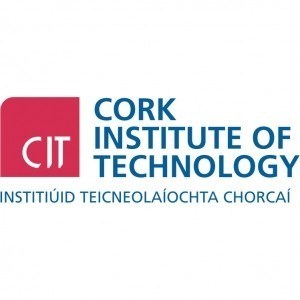Photos of university / #nuigalway
The Bachelor of Science in Occupational Therapy at the National University of Ireland is a comprehensive undergraduate program designed to prepare students for a rewarding career in helping individuals achieve independence and improved quality of life through therapeutic activities. This programme combines a strong foundation in human anatomy, physiology, psychology, and biomechanics with specialized training in occupational therapy practices. Over the course of the program, students develop essential clinical skills, critical thinking, and evidence-based practice techniques necessary for effective intervention in diverse populations, including children, adults, and the elderly. The curriculum integrates theoretical knowledge with practical experience, including extensive placements within healthcare settings, schools, community organizations, and rehabilitation centers across Ireland. Students learn to assess clients' needs, develop tailored treatment plans, and employ a variety of therapeutic modalities to promote physical, cognitive, and emotional well-being. The program emphasizes interprofessional collaboration, ethics, and cultural awareness, ensuring graduates are competent, compassionate, and adaptable practitioners. Access to modern laboratories and simulation facilities enhances hands-on learning, while partnerships with healthcare providers facilitate real-world exposure. Graduates of this programme are equipped to work in various environments, such as hospitals, clinics, schools, and home care services, and are prepared to pursue further postgraduate study or research in occupational therapy. The university is committed to maintaining high academic standards and fostering an inclusive learning environment that supports student success and professional development. Completing this degree opens pathways to registration with professional regulatory bodies, allowing graduates to practice as qualified occupational therapists both in Ireland and internationally.
Year 1
- Principles for Practice/ Fundamentals I
- Psychology
- Anatomy
- Human Body Function
- Mental Health 1
- Mental Health 2
- Enabling Occupation Physical Disability
- Group work and Professional Skills
Year 2
- Fundamentals of Occupational Therapy II
- Neuroanatomy
- Neurophysiology
- Health Psychology
- Enabling Occupation Paediatrics
- Enabling Occupation Intellectual Disability
- Practice Education I & II
- Case Study I & II
Year 3
- Fundamentals of Occupational Therapy III & IV
- Cognitive Neuropsychology
- Evidence-Based Practice
- Enabling Occupation Community
- Standardised Testing in Occupational Therapy
- Enabling Occupation for Older Adults
- Emerging Areas of Practice
- Research Methods
- Social Policy
- Neurology
Year 4
- Practice Education III & IV
- Case Study III & IV
- Management and Leadership
- Preparation for Practice
- Research Project
Requirements
- Certificate of Secondary Education and an acceptable grade from a recognised Foundation programme.
- or First year of Bachelor degree/Bakalvr
- Minimum GPA 3/Satisfactory
- All applicants, whose first language is not English, must present one of the following qualifications in the English language. IELTS 6.5. TOEFL 88.
- The completed Non-EU Undergraduate Application Form
- A copy of your Passport
- A Personal Statement (typed) of no more than 800 words outlining your academic interests, sporting and/or cultural interests and your reasons for wanting to study at NUI Galway. You may also include aspects of your academic career that are not necessarily reflected in your application.
- Two sealed Letters of Recommendation, ideally from a teacher and/guidance counsellor or someone who knows you personally.
- Minimum Grade HC3 in two subjects and Passes in four other subjects at H or O Level in the Leaving Certificate including: Irish, English, another language, Mathematics, a laboratory science subject (i.e. Chemistry, Physics, Biology, Physics with Chemistry (joint) or Agricultural Science and any other subject recognised for entry purposes.
- Students must satisfy the Garda/Police vetting and Medical Clearance requirements.
The financing options for the Occupational Therapy program at the National University of Ireland (NUI) are designed to accommodate both domestic and international students, providing various pathways to support students financially throughout their studies. Domestic students may be eligible for government-funded support, including SUSI (Student Universal Support Ireland) grants, which cover part of tuition fees for full-time undergraduate and postgraduate programmes, subject to eligibility criteria such as nationality, residency, and income level. Students can also explore student loan schemes available through Irish state-sponsored financial institutions, which offer low-interest loans tailored for higher education purposes.
For EU students, the European Union funding mechanisms may also be applicable, along with additional grants that assist with living expenses and academic costs. Non-EU international students are generally responsible for the full cost of attendance; however, they can seek scholarships, bursaries, and sponsorship opportunities provided by the university or external organizations. The university offers a limited number of scholarships and bursaries specifically for health sciences students, including those pursuing Occupational Therapy, based on academic merit and financial need.
Part-time work is another common financing avenue for students pursuing this program; Ireland's regulations permit international students to work part-time during their studies, subject to visa conditions, helping to partly cover living expenses. Additionally, students are encouraged to explore private funding options, such as educational loans from banks or financial institutions in their home country or sponsorships from healthcare organizations interested in fostering skilled occupational therapists.
The university’s financial aid office provides detailed guidance on all available funding sources, application procedures, and deadlines. Prospective and current students are advised to stay informed about changes to funding policies and to apply early to maximize support opportunities. Overall, financing a degree in Occupational Therapy at NUI involves a combination of governmental support, scholarships, private funding, and work opportunities, enabling students to manage the costs associated with their professional education effectively.
Occupational Therapy at the National University of Ireland is a highly regarded program designed to prepare students for a dynamic and rewarding career in healthcare. The program provides comprehensive education and practical training to equip graduates with the skills necessary to support individuals of all ages who experience physical, mental, or cognitive challenges that impact their daily functioning. The curriculum integrates theoretical knowledge with practical application, emphasizing evidence-based practice, patient-centered care, and the latest advancements in occupational therapy. Students benefit from access to modern facilities, experienced faculty, and clinical placements that allow them to develop hands-on skills in diverse healthcare settings, including hospitals, community health centers, and rehabilitation services.
Throughout their studies, students learn about human development, health promotion, physical and mental health assessment, intervention techniques, and the importance of interdisciplinary collaboration. The program also emphasizes ethical practice, cultural competence, and the importance of lifelong learning to adapt to evolving healthcare needs. Graduates of the program are equipped to work as qualified occupational therapists, contributing to improving patients’ quality of life by enabling them to participate fully in personal and community activities. The program also fosters research skills and encourages engagement in current issues relevant to occupational therapy practice, ensuring graduates are well-prepared for future challenges.
The Irish healthcare system's focus on holistic and community-based care aligns with the program’s emphasis on creating competent practitioners who can operate effectively across various sectors. The program collaborates with local health authorities and professional bodies, maintaining high standards consistent with national and international occupational therapy practices. Upon completion, graduates are eligible for registration with the Irish Society of Occupational Therapists and can pursue further specialization, research, or leadership roles in healthcare. The program’s combination of academic rigor, practical experience, and professional development opportunities makes it a competitive choice for students seeking to make a meaningful difference in people's lives through occupational therapy.









